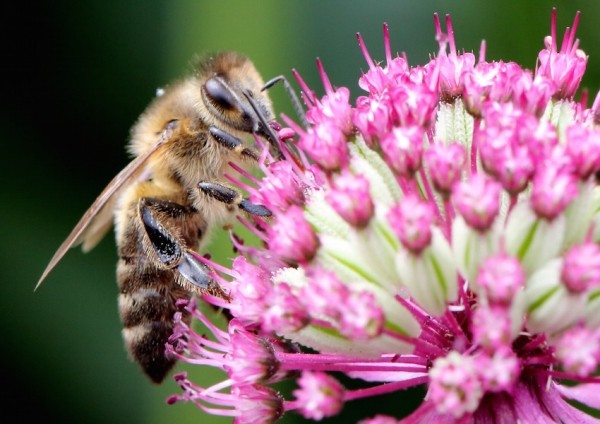More Posts
- Fermenting Foods A Creative Aspects of Making Food from Scratch
- This U.S. State Just Banned It: Antibacterial Soap Is So Dangerous
- 5 Things To Do To Change Your Life
- Rotavirus Vaccine: Cause Intussusception, Adds It to Injury Compensation Program, Gov’t Admits
- Check Your Labels!: 40 Sneaky Names For MSG

You probably buy organic food because you believe it’s better for your health and the environment but you also may have heard criticism that “organic cannot feed the world.”
Biotech and chemical companies have spent billions of dollars trying to make us think that synthetic fertilizers, pesticides and genetically modified organisms (GMOs) are necessary to feed a growing population. But science indicates otherwise.
There’s clear and conclusive scientific data showing organic agriculture is key not only to solving global hunger but also to curbing global warming, promoting public health, revitalizing farming communities, and restoring the environment.
We don’t need outdated technologies like GM to feed the world, a new analysis has shown.
A systematic overview of more than 100 studies comparing organic and conventional farming finds that the crop yields of organic agriculture are higher than previously thought. The study, conducted by researchers at the University of California, Berkeley, also found that certain practices could further shrink the productivity gap between organic crops and conventional farming.
The study, to be published online Wednesday, Dec. 10, in the Proceedings of the Royal Society B, tackles the lingering perception that organic farming, while offering an environmentally sustainable alternative to chemically intensive agriculture, cannot produce enough food to satisfy the world’s appetite.
“In terms of comparing productivity among the two techniques, this paper sets the record straight on the comparison between organic and conventional agriculture,” said the study’s senior author, Claire Kremen, professor of environmental science, policy and management and …
A recently released nine-year study in Iowa shows traditional Midwest farms can benefit from adopting methods commonly used on organic farms. By extending the conventional two-year corn-soybean rotation to a more diversified three-year and four-year rotation, corn and soybean yields rose, chemical nitrogen fertilizer and herbicides fell 80%, herbicide-related fresh-water toxicity was 200 times lower and genetically modified (GMO) seed showed no advantage over conventional seed in the extended rotations—while profits per acre remained similar in all three systems.
These findings strongly suggest that organic farming can reduce chemicals, increase yields per acre and simultaneously maintain profitability. In addition, organic farming could build healthy diversity into our diets and increase resilience and security in our nation's food supply.
Please Read this Article at NyrNaturalNews.com





Leave a Reply